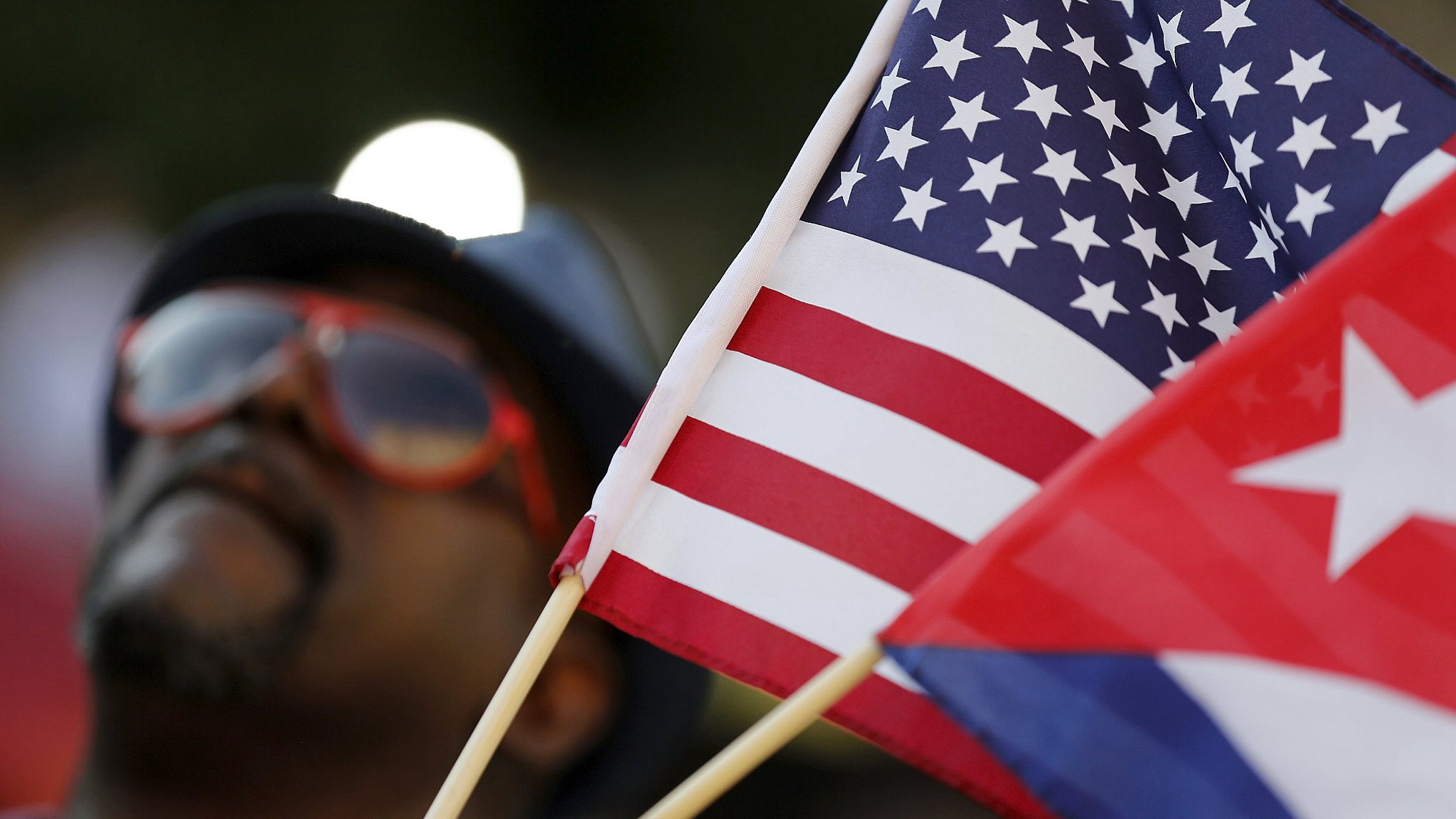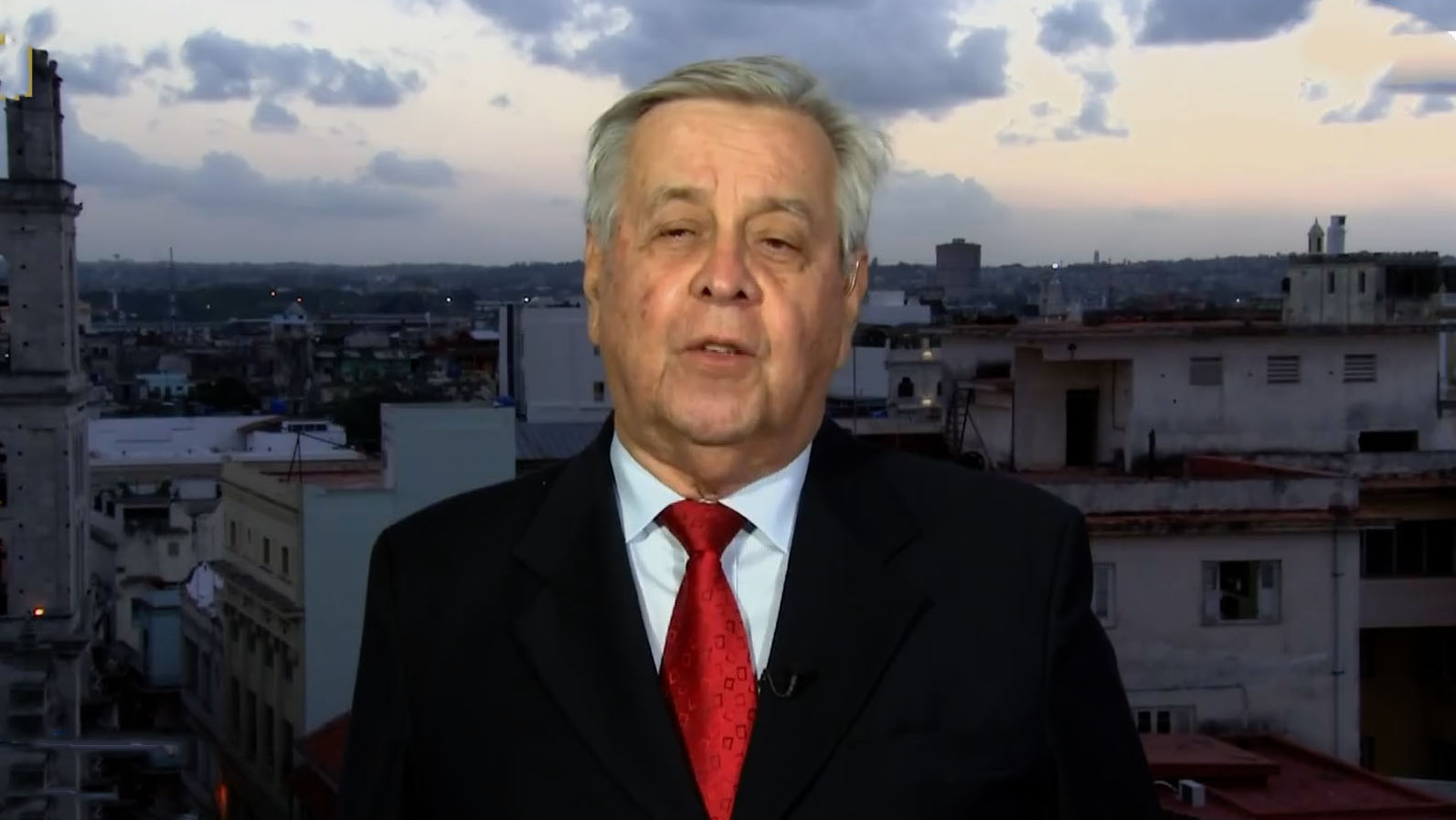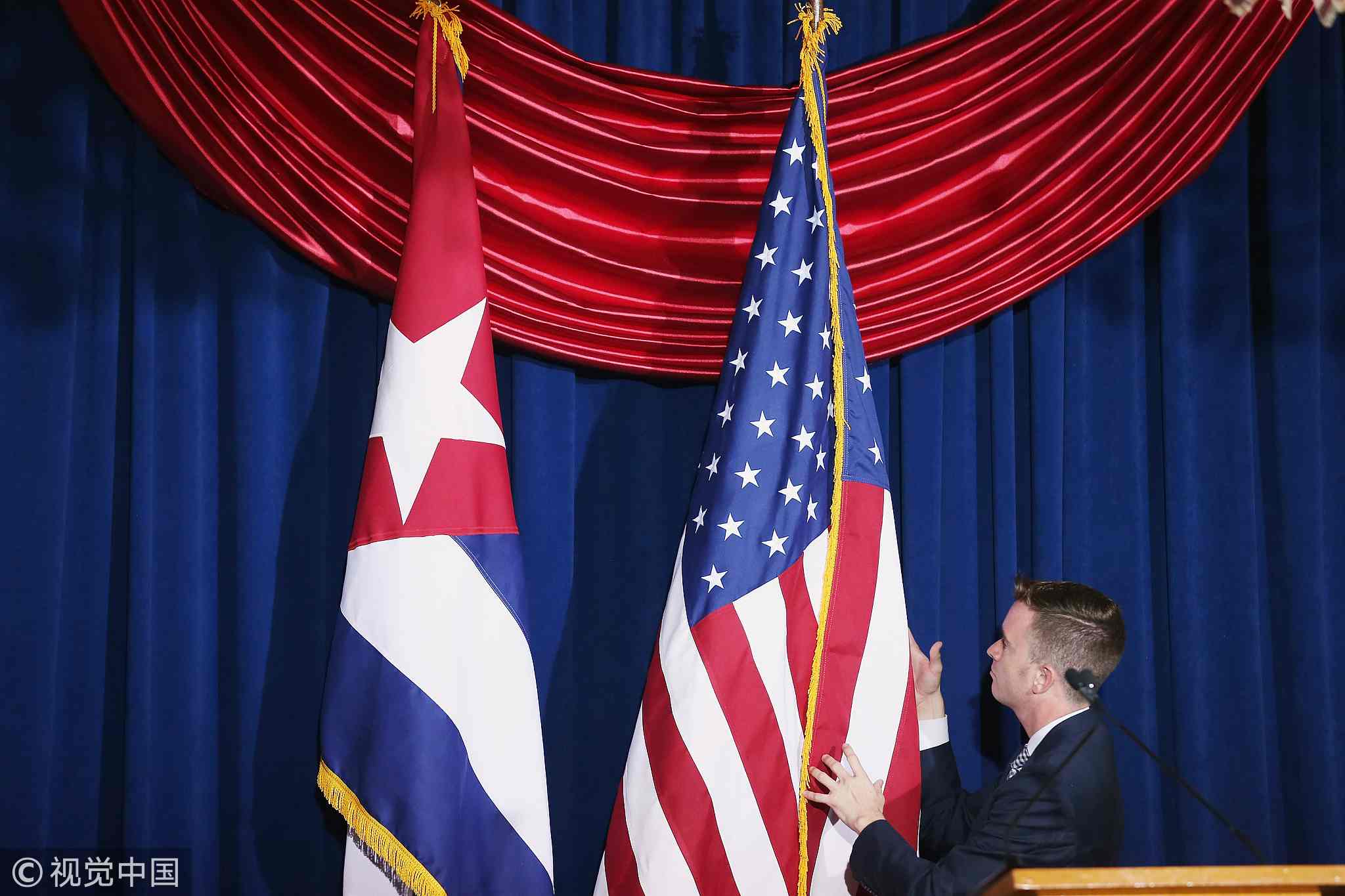
Opinions
12:25, 16-Jan-2019
The Heat: Constant talks serve as silver lining for Cuba-U.S. ties
Updated
19:45, 17-Jan-2019
CGTN's The Heat

On New Year's Day, Cuba celebrated the 60th anniversary of its revolution. Former Cuban president and current Communist Party leader Raul Castro criticized the Trump administration in his New Year's address, saying, “The U.S. government seems to be taking the course of confrontation with Cuba.”
Castro's comment was seen as a response to U.S. National Security Advisor John Bolton's speech last December referring to Cuba as one of a “troika of tyranny.” The Trump administration's diplomatic approach was a reversal of Obama's efforts to enhance the bilateral relationship in 2016.
02:14

The future of improved bilateral ties will face challenges. Former Cuban diplomat and educator Carlos Alzugaray thinks the current relationship between Cuba and the United States is discouraging. However, much of the status quo is unchanged; diplomatic ties remain and the security sphere continues to be marked by cooperation and exchanges.
Though hardships are significant regarding people-to-people exchanges, the new conditions make the bilateral relations different from the pre-Obama period. The silver lining is that the two governments keep talking to each other and the mid-level officials still have frequent connections.
Philip Brenner, a professor of international relations at American University, indicates the signature policy pattern of the Trump administration is that President Trump tends to encourage a heated public opinion environment via his words and tweets while putting few of his commitments into solid actions.
According to Brenner, the illness problem surrounding U.S. personnel at the embassy in Havana has nothing to do with a “sonic" or “acoustic" attack that the CIA was worried about. The discourse, he believes, is being fabricated for political purposes.

VCG Photo
VCG Photo
Moreover, Hugo Cancio, the president of Fuego Enterprises, accuses Senator Marco Rubio and Bolton of “kidnapping” the bilateral relationship between the U.S. and Cuba. He fears the change and transformation policy will hurt the 11 million or so Cubans.
James Early, the former cultural and heritage director of the Smithsonian Institute, is concerned that dangerous rhetoric is on the rise. Bolton's “troika” targeted Cuba, Venezuela, and Guatemala, countries that are under the threat of economic depression, media attacks, and potential political instability.
What Castro pays more attention to is that Latin America is experiencing an element of danger. The extreme right-wing leader Bolsonaro in Brazil could bring white fascism in Latin America, the guest said. It is essential to understand that bilateral relations are situated in a multilateral context. The rhetoric now intensifies the uncertainty over foreign policies.
Alzugaray is confident that Cuba will not be trapped by the propaganda of words between the two sides. Cuba has a flexible foreign policy that welcomes the further opening of its economy.
The U.S. embargo, widely viewed as a containment measure against Cuba since the 1960s, has not been removed and has been locked up in law since 1996, making it more difficult to remove through executive orders of the U.S. president.

Cuba's President Miguel Diaz-Canel speaks during a meeting with Venezuela's President Nicolas Maduro at the Miraflores Palace in Caracas, Venezuela, May 30, 2018. /VCG Photo
Cuba's President Miguel Diaz-Canel speaks during a meeting with Venezuela's President Nicolas Maduro at the Miraflores Palace in Caracas, Venezuela, May 30, 2018. /VCG Photo
Looking to the future challenges of Cuba, James shares his impression of the new Cuban President Miguel Diaz-Canel. He believes President Diaz-Canel is a meticulous man. In his view, Raul Castro will still be the de facto validator of significant decisions in Cuba, though not necessarily the initiator.
That means there will be more independence in the Cuban political system. And Cuban people and Cuban diaspora are involved in the constitutional process.
Alzugaray believes changes will continue in Cuba. After the new constitution is approved next month, president Diaz-Canel will focus on the economic issues. The pending economic reform is underway. The external relations with China, Russia, and the European Union will also boost the economic rise in Cuba. Currently, Cuba is having a “honeymoon” with these major countries after the U.S., and we can expect enhanced future cooperation in 2019.
(Cover photo: A man with small U.S. and Cuba flags stands on the sidewalk in the hours before officials raise the flag at the Cuban embassy in Washington, July 20, 2015. /VCG Photo)
(The Heat with Anand Naidoo is a 30-minute political talk show on CGTN. It airs weekdays at 7:00 a.m. BJT and 7:00 p.m. Eastern in the U.S.)
(If you want to contribute and have specific expertise, please contact us at opinions@cgtn.com.)

SITEMAP
Copyright © 2018 CGTN. Beijing ICP prepared NO.16065310-3
Copyright © 2018 CGTN. Beijing ICP prepared NO.16065310-3